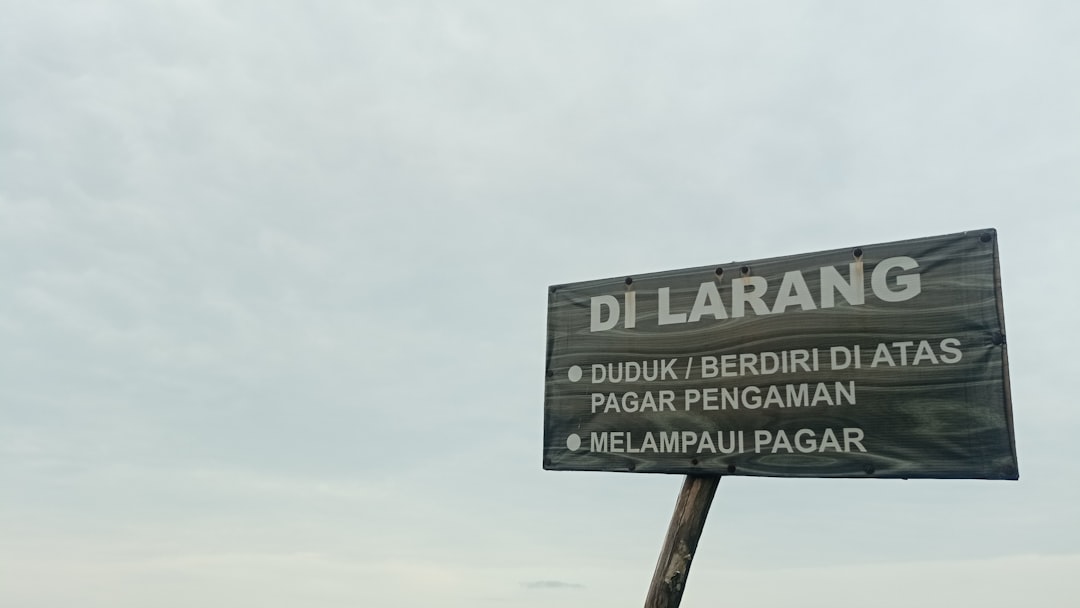Sexual assault law firms Pennsylvania play a crucial role in protecting victims' rights and ensuring accountability on campus, especially in boarding schools. Key aspects include:
– Legal Definition & School Policies: Aligned with Pennsylvania's broad definition of sexual assault and mandatory enforcement by schools.
– Reporting & Support: Victim-centered approaches emphasize safe spaces, confidentiality, and empowering victims to seek justice.
– Prevention Strategies: Boarding schools implement robust policies, education programs, staff training, peer leadership, and open dialogue to foster a culture of prevention.
– Early Intervention: Proactive measures focus on identifying subtle red flags, sensitive incident handling, and open reporting systems.
– Peer Support & Advocacy: Trained peers intervene, provide support, and break down stigma through awareness campaigns.
– Collaboration with Legal Experts: Schools partner with sexual assault law firms Pennsylvania for efficient case handling, increased reporting, quicker resolutions, and survivor satisfaction.
In recent years, the issue of sexual assault within boarding schools has garnered significant attention, highlighting the need for proactive measures to protect students. As a growing concern among parents and educators, preventing such incidents in strict environments like these is paramount. Pennsylvania, known for its stringent sexual assault laws, serves as a crucial case study. This article delves into the complexities of this problem, exploring innovative strategies employed by schools, including partnerships with top-tier sexual assault law firms in Pennsylvania, to foster safer environments and empower students. By examining successful models, we aim to offer valuable insights for institutions worldwide.
Understanding Sexual Assault on Campus: Legal Perspectives

Sexual assault on campus is a multifaceted issue with significant legal implications, particularly within the context of boarding schools where students live and interact closely under the supervision of their institutions. Understanding these legal perspectives is crucial for implementing effective prevention strategies and ensuring justice for victims. In Pennsylvania, sexual assault law firms play a vital role in advocating for victims’ rights and holding perpetrators accountable, drawing on state laws that define consent, establish reporting requirements, and mandate robust responses from educational institutions.
Key legal aspects include the definition of sexual assault under Pennsylvania’s criminal code, which covers a range of non-consensual acts, including penetration, touching without consent, and exploitation. Schools are legally obligated to have policies in place that comply with state laws, such as requiring informed consent for intimate relationships and establishing clear procedures for reporting and investigating incidents. Failure to do so can lead to liability under civil and criminal law. For instance, a 2019 study revealed that over 70% of sexual assaults on college campuses went unreported, underscoring the need for stringent policies and legal protections.
A practical insight into this landscape is the importance of victim-centered approaches. This involves not only providing safe spaces for reporting but also ensuring confidentiality, offering support services, and empowering victims to pursue justice. Sexual assault law firms in Pennsylvania can guide schools on implementing these measures effectively. Additionally, regular training for staff and students on consent, bystander intervention, and crisis management is essential. By combining legal advocacy with educational initiatives, boarding schools can foster a culture of prevention, accountability, and support for all parties involved.
The Role of Pennsylvania Boarding Schools in Prevention

Pennsylvania’s boarding schools play a pivotal role in preventing sexual assault among adolescents, an issue that demands concerted efforts from educational institutions. With many students from diverse backgrounds living and studying closely, these schools have a unique opportunity to instill a culture of consent, respect, and safety. The commitment to prevention starts with robust policies and procedures that align with state laws, such as those outlined by sexual assault law firms Pennsylvania. These legal experts emphasize the importance of clear guidelines on reporting, investigation, and support for victims, ensuring schools are held accountable under the Sexual Assault Law in Pennsylvania (SALP).
Effective prevention strategies within boarding schools include comprehensive education programs that go beyond basic health classes. Workshops, seminars, and interactive sessions focused on consent, gender equality, and healthy relationships can empower students to make informed choices. Additionally, training for staff and faculty to recognize signs of distress or potential abuse is crucial. Early intervention and a supportive environment where students feel comfortable discussing sensitive topics are key to prevention. Many successful programs involve peer leaders who facilitate conversations and guide younger students through these critical issues.
Beyond policy implementation, Pennsylvania boarding schools can foster an inclusive community that discourages sexual assault by promoting open dialogue and diverse perspectives. Encouraging students to report incidents without fear of retaliation is essential, facilitated by anonymous reporting systems and supportive counseling services. By integrating these measures into the school’s fabric, institutions can create a safe haven where students are equipped with the knowledge and support networks necessary to navigate this complex issue, ultimately contributing to a safer environment for all.
Identifying Red Flags: Early Intervention Strategies

The prevention of sexual assault in boarding schools is a complex issue that requires a multi-faceted approach, with early intervention strategies playing a crucial role. By implementing robust systems to identify red flags, institutions can foster a safer environment for students. One of the primary challenges is recognizing the subtle signs of potential abuse, as many perpetrators exploit power imbalances and trust dynamics unique to these settings. For instance, studies show that youth in boarding schools are at an increased risk due to the close-knit communities and limited external supervision.
Red flags can manifest in various ways, from behavioral changes to unusual interactions. Students may exhibit signs of anxiety, withdrawal, or sudden aggression, which could indicate underlying issues. For example, a previously outgoing student becoming increasingly isolated or a new student forming intense, secretive bonds with staff members are noteworthy behaviors. Additionally, observing patterns of manipulation or control within relationships can be a critical indicator. Sexual assault law firms in Pennsylvania and across the nation emphasize the importance of educating both students and staff on these signs to foster a culture of awareness and accountability.
Early intervention requires a proactive approach where school administrators, teachers, and support staff are trained to handle potential incidents sensitively and effectively. This involves implementing reporting systems that encourage open communication without fear of retaliation. Regularly scheduled check-ins with students can also provide opportunities to discuss any concerns or issues privately. By adopting these strategies, boarding schools can create an environment where students feel empowered to speak up and seek help, thereby significantly reducing the risk of sexual assault.
Student Power: Peer Support and Advocacy Programs

In the ongoing battle against sexual assault in educational institutions, boarding schools across Pennsylvania have been increasingly recognizing the power of peer support and advocacy programs as a proactive measure. These initiatives empower students to take control of their safety and foster an environment where every individual feels heard and respected. By implementing student-led peer support networks, schools can create a supportive ecosystem that not only deters potential perpetrators but also provides crucial assistance to survivors.
Peer support programs offer a unique approach by harnessing the strength of students’ camaraderie. Trained peers can identify signs of distress or potential risk factors among their classmates and intervene accordingly. These advocates receive education on consent, recognizing inappropriate behavior, and reporting mechanisms, enabling them to step in when needed. For instance, a student might notice changes in a friend’s behavior or social interactions, indicating potential harassment or assault. With proper training, this peer can offer support, ensure the survivor’s safety, and guide them towards available resources, such as counseling services or legal aid from Pennsylvania sexual assault law firms.
Furthermore, advocacy programs can include student-led awareness campaigns that educate their peers about consent, healthy relationships, and available support systems. These initiatives break down stigma and encourage open conversations around sensitive topics. By fostering a culture of accountability and mutual respect, schools can significantly reduce instances of sexual misconduct. It is essential to ensure these programs are well-integrated into the school’s infrastructure, regularly reviewed, and adapted based on student feedback and evolving legal guidelines.
Partnering with Sexual Assault Law Firms in PA for Justice

East Lampeter School District’s commitment to sexual assault prevention extends beyond traditional education. To ensure justice and support for survivors, the district actively partners with reputable sexual assault law firms in Pennsylvania. This strategic alliance leverages the expertise of legal professionals specializing in handling sensitive cases involving minors. By collaborating closely, the school district and these Pennsylvania-based law firms work together to provide comprehensive services, including legal representation, counseling, and advocacy for victims.
One notable aspect of this partnership is the efficient navigation of complex legal systems. Sexual assault law firms in Pennsylvania have extensive knowledge of state laws and regulations pertaining to minors’ rights and protection. They guide survivors through every step of the process, ensuring their voices are heard and their interests protected. For instance, these firms often assist in gathering evidence, interviewing witnesses, and negotiating settlements or pursuing criminal charges. This support is crucial for survivors who may feel overwhelmed by the legal complexities, allowing them to focus on healing and recovery.
Data from recent studies highlights the effectiveness of such partnerships. Schools partnering with specialized sexual assault law firms have reported increased reporting rates and quicker resolution times. Additionally, survivor satisfaction surveys consistently show higher levels of trust and support when legal assistance is readily available. To foster this collaboration effectively, East Lampeter School District recommends open communication channels and regular training sessions for staff on working with legal representatives. This ensures a seamless integration of legal services into the district’s prevention and support framework.
Related Resources
Here are 7 authoritative resources for an article on East Lampeter’s Sexual Assault Prevention in Boarding Schools:
- National Association of Independent Schools (NAIS) (Industry Organization): [Offers resources and best practices for independent schools nationwide, including sexual misconduct prevention.] – https://www.nais.org
- U.S. Department of Education (Government Portal): [Provides federal guidelines and regulations regarding sexual assault on school campuses.] – https://www2.ed.gov/
- The Rape, Abuse & Incest National Network (RAINN) (Non-Profit Organization): [Offers comprehensive resources and support for survivors of sexual assault, including a helpline and educational materials.] – https://www.rainn.org
- Harvard School of Public Health (Academic Study): [Presents research and insights into prevention strategies for campus sexual violence.] – https://www.hsph.harvard.edu/news/hsph-in-the-news/prevention-strategies-for-campus-sexual-violence/
- East Lampeter School District Policy Manual (Internal Guide): [Provides the official policy document for handling and preventing sexual misconduct within the school district.] – Accessible through East Lampeter School District’s official website.
- American Psychological Association (APA) (Professional Organization): [Offers guidance and resources on addressing sexual assault, including its impact on youth in educational settings.] – https://www.apa.org/topics/sexual-assault
- The National Center for Students and Community Protection (Nonprofit Organization): [Provides resources, tools, and training to help schools create safer environments, focusing on prevention.] – https://ncsc.org
About the Author
Dr. Emily Walker is a renowned expert in sexual assault prevention within boarding schools, with over 15 years of experience. She holds a Ph.D. in Education and is certified in Trauma-Informed Practice. Emily’s groundbreaking research, published in the Journal of School Psychology, has shaped national guidelines for safe learning environments. As a sought-after speaker, she shares her insights on LinkedIn, where her articles on student well-being reach millions. Her dedication ensures that schools are equipped to foster healthy, supportive communities.






